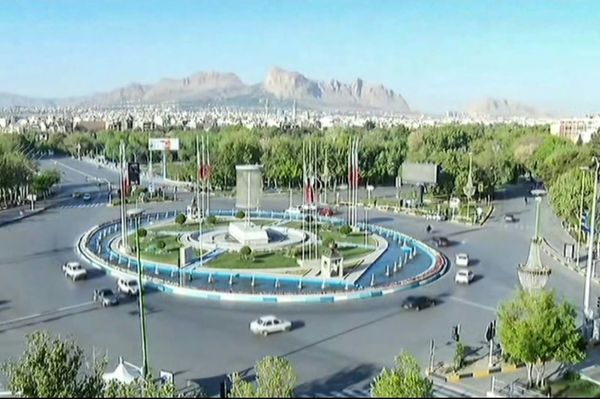
Yawn.
After the Sunday night street brawl, yesterday’s final leaders debate on Seven at the adult-friendly time of 9.10pm was an altogether more placid, tired affair.
This is no shade to Mark Riley, who did an impeccable job as moderator, managing to keep things civil and audible while giving Scott Morrison and Anthony Albanese enough leeway to get in a few blows.
Rather, it seemed a resigned reflection of where we are in the campaign. Nine days out from polling day, Morrison’s attacks aren’t landing, the polls aren’t narrowing, and the vibe shift towards Labor is getting harder for the government to stop. A recent YouGov poll has Labor on track to win 80 seats in the lower house. The government’s hold is slipping and everyone knows it.
Viewed purely in a vacuum, last night was another dead heat, with neither leader able to land a killer blow (if such a thing even exists). That didn’t stop the undecided voters gathered by Seven overwhelmingly calling it for Albanese, with 50% giving him the win, compared with 34% for Morrison and 16% undecided.
Albanese won the room in each of the marginal electorates where voters were polled, except for Hasluck in Western Australia where it was a tie.
That’s worrying for the prime minister because he didn’t really put a foot out of line last night. In typical Morrison fashion, he stared down the barrel of the camera, delivered his lines with blustery aplomb, huffed and puffed about boats, and maintained that highly focus-grouped facial expression of “statesmanlike smug” throughout.
The Labor leader was called a “loose unit” on the economy for daring to push for workers to get a wage rise — a clear sign Morrison is indifferent to young voters, for whom this term is actually one of endearment.
On border protection, Morrison continued to claim that Labor (who supports the government’s regime) would kickstart the people-smuggling trade because of things that happened a decade ago.
“I know how to keep [asylum seeker boats] stopped because I stopped them,” he thundered.
He was even able to turn a series of pointed questions from Riley about the future of backbench minister Alan Tudge into an attack on Albanese over his handling of bullying allegations against the late senator Kimberley Kitching.
But none of it really worked, because at this point, the only way Morrison could definitively “win” was a total evisceration of his opponent, and an Albanese gaffe shocking enough to reverberate through the news cycle all the way until polling day.
Across three debates that hasn’t happened. That early gaffe distracted us from the fact that Albanese is pretty good at this stuff. He’s been an MP for 26 years, was leader of the house for six, and is a renowned question time brawler. He was never going to implode on the debate stage.
Albanese might be a little less polished and camera-obsessed as his opponent. But what increasingly came out last night was his own flavour of prime ministerial-ness. On crunch issues of wages and cost of living, his messaging seemed more personal and empathetic, soaked in his lived experience.
Framing a modest wage increase as just “two cups of coffee a day” was an effective response to shrill claims from a government saying it would ruin the economy. On cheaper childcare, there seemed some vision to counter the government’s whole “stick with the devil you know” schtick.
If you’re looking for more reasons why Morrison still trails, one of the final questions was revealing. When asked to name an admirable quality about the other leader and something that worries them, Morrison recounted Albanese’s log-cabin origin story in misty-eyed detail, before a “Katter-esque” pivot to criticising him for not having the chops to be prime minister.
Albanese managed to say something nice (about Morrison’s funding for mental health) with no sting.
Something about Morrison’s backhanded compliment just seemed … unpleasant. “Unpleasant” seems to also be the pervasive character assessment offered about the PM from so many, even on his side of politics. Nobody’s queuing up to call him a “top bloke” either.
The Coalition knows people don’t really like Morrison. That’s why it’s comparing him with a dentist (don’t have to like him as long as he fills your cavities).
Unpleasantness also pervades the government’s reelection pitch. Any traces of the early campaign optimism about Australia’s comparatively strong economy have dwindled after the inflation and interest rate rises, replaced with fear and bluster.
It might be enough to claw back the undecideds. But last night was one of Morrison’s last chances to turn things around. He didn’t.





